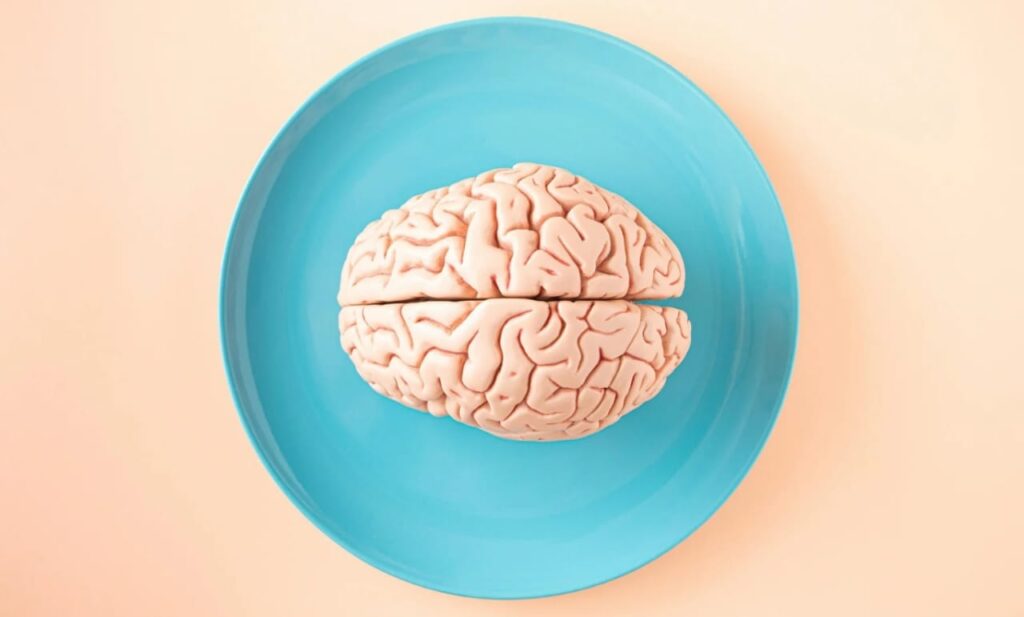
A growing body of research suggests that what we eat doesn’t just fuel our bodies—it directly impacts brain health. Recent studies highlight vitamin K, a nutrient often overlooked in mainstream diet discussions, as a potential key player in preserving memory and slowing cognitive decline. While vitamin K is best known for its role in blood clotting and bone health, scientists are now uncovering its influence on brain function. A 2023 review published in Advances in Nutrition found that individuals with consistently low vitamin K intake faced higher risks of memory impairment and faster cognitive deterioration as they aged. This raises urgent questions about how modern diets, which frequently lack vitamin-rich leafy greens and fermented foods, could be silently undermining long-term brain health.
What Is Vitamin K, and Why Does the Brain Need It?
Vitamin K is a fat-soluble vitamin existing in two primary forms: K1 (phylloquinone) and K2 (menaquinone). K1 is abundant in leafy greens like spinach, kale, and broccoli, while K2 is found in fermented foods like natto, cheese, and animal liver. Both forms activate proteins that support blood clotting, bone metabolism, and—crucially—brain function. One such protein, Gas6, regulates cell survival, inflammation, and the health of brain cells. Vitamin K also supports the production of sphingolipids, fats critical for maintaining the structure and function of nerve cells. Without adequate vitamin K, these processes may falter, leading to cellular damage and impaired communication between brain regions involved in memory and learning.
The Science Linking Vitamin K Deficiency to Cognitive Decline
A landmark study tracked 320 adults aged 65+ over five years, monitoring their diets and cognitive performance. Participants with the lowest vitamin K intake scored 20% lower on memory tests and showed faster declines in executive function compared to those with sufficient intake. Brain imaging revealed reduced gray matter volume in regions like the hippocampus, which governs memory formation. Dr. Sarah Brewer, a nutritionist and author of Optimal Nutrition for Brain Health, explains, “Vitamin K’s anti-inflammatory properties protect neurons from oxidative stress, a key driver of Alzheimer’s and dementia. Low intake may leave the brain vulnerable to accelerated aging.” Animal studies support this: rats fed vitamin K-deficient diets struggled with maze navigation and showed increased amyloid-beta plaques, a hallmark of Alzheimer’s.
Who’s at Risk? Modern Diets and Vitamin K Gaps
Despite its importance, vitamin K deficiency is surprisingly common. The National Health and Nutrition Examination Survey (NHANES) found that 35% of U.S. adults consume less than half the recommended daily intake (90 mcg for women, 120 mcg for men). Processed diets heavy in refined carbs and low in vegetables are partly to blame. Older adults face higher risks due to reduced fat absorption—a problem since vitamin K requires dietary fat for uptake. Medications like blood thinners (e.g., warfarin) can also interfere with vitamin K metabolism, exacerbating deficiencies. “Patients on these drugs often avoid vitamin K-rich foods, unaware that balance—not avoidance—is key,” says Dr. Emily Clarke, a geriatrician at Johns Hopkins.
Real-World Implications: Case Studies and Global Data
In Japan, where natto (a fermented soybean dish rich in K2) is a breakfast staple, dementia rates are 25% lower than in Western countries. Conversely, regions with limited access to fresh greens, such as parts of rural India, report higher incidences of age-related cognitive issues. A 2021 study in Neurology found that adults who ate at least one daily serving of vitamin K-rich vegetables had a 32% lower risk of dementia over a decade. Even modest dietary shifts matter: adding half a cup of cooked spinach to meals provides 444% of the daily vitamin K requirement.
Practical Steps to Boost Vitamin K Intake
Improving vitamin K levels doesn’t require drastic changes. Small, consistent swaps can make a difference:
- Add a handful of kale or spinach to smoothies or omelets.
- Snack on roasted Brussels sprouts or broccoli with olive oil.
- Incorporate fermented foods like sauerkraut or kefir.
- Pair vitamin K-rich foods with healthy fats (e.g., avocado, nuts) to enhance absorption.
For those on blood thinners, consult a healthcare provider to tailor intake without disrupting medication efficacy.
The Bigger Picture: Diet’s Role in Aging Brains
While vitamin K isn’t a cure-all, it underscores nutrition’s role in brain health. “We can’t control genetics, but diet is a modifiable risk factor,” notes Dr. David Smith, a neuroscientist at the University of Oxford. Combined with exercise, sleep, and mental stimulation, a vitamin K-rich diet could help millions delay or mitigate cognitive decline. As research evolves, public health strategies must prioritize accessible nutrition education—especially for aging populations.
Final Thoughts
The connection between vitamin K and brain health is a reminder that every bite counts. In a world where processed foods dominate, choosing leafy greens or fermented options isn’t just about eating healthy—it’s an investment in preserving memory and mental clarity for decades to come. Future studies will likely explore optimal vitamin K levels and its synergy with other nutrients, but for now, the message is clear: neglecting this vitamin could leave our brains vulnerable when they need protection the most.
